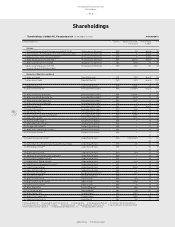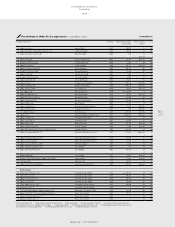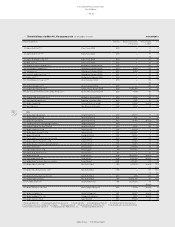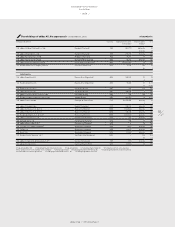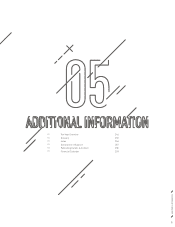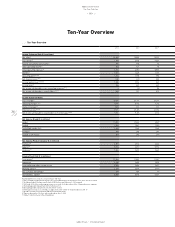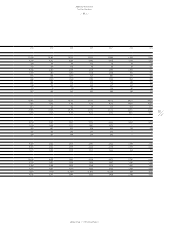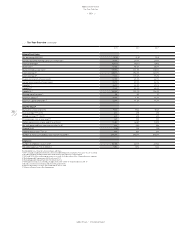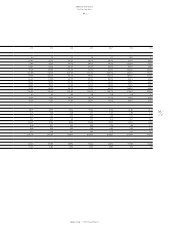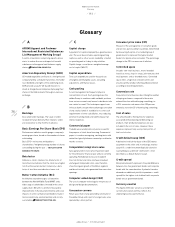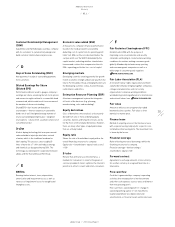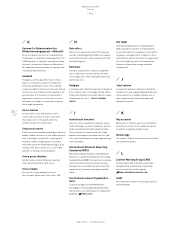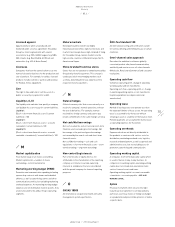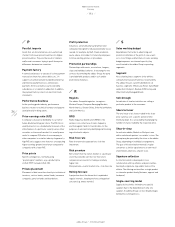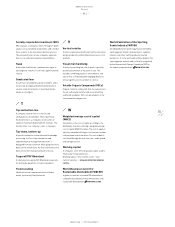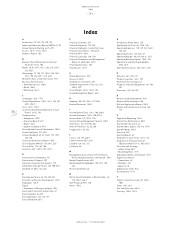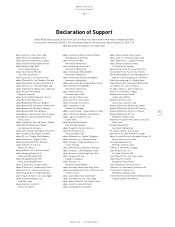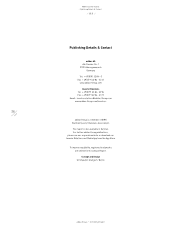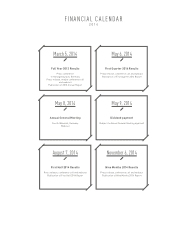Reebok 2013 Annual Report Download - page 254
Download and view the complete annual report
Please find page 254 of the 2013 Reebok annual report below. You can navigate through the pages in the report by either clicking on the pages listed below, or by using the keyword search tool below to find specific information within the annual report.
2
adidas Group
/
2013 Annual Report
Additional Information
250
2013
Glossary
/
05.2
/
Glossary
/
A
AFIRM (Apparel and Footwear
International Restricted Substances
List Management Working Group)
A centre of excellence comprising experts whose
aim is to reduce the use and impact of harmful
substances in the apparel and footwear supply
chains : WWW.AFIRM-GROUP.COM.
American Depositary Receipt (ADR)
US-traded negotiable certificate of a foreign-based
company held by a US bank that entitles the holder
to all dividends and rights of the underlying stock.
ADRs provide a way for US-based investors to
invest in foreign-based companies by buying their
shares in the USA instead of through an overseas
exchange.
/
B
Backlogs
Also called order backlogs. The value of orders
received for future delivery. Most retailers’ orders
are received six to nine months in advance.
Basic Earnings Per Share (Basic EPS)
Performance indicator used to gauge a company’s
earnings per share, based on the number of shares
outstanding.
Basic EPS = net income attributable to
shareholders / weighted average number of shares
outstanding during the year
/
SEE ALSO DILUTED
EARNINGS PER SHARE.
Beta factor
Indicates a stock’s relative risk. A beta factor of
more than one indicates that the stock has a higher
risk than the overall market. Conversely, a beta
factor of less than one indicates a lower risk.
Better Cotton Initiative (BCI)
An initiative created through a collaboration
between the World Wildlife Fund (WWF) and a
wide range of stakeholders involved in the cotton
supply chain. BCI aims to promote measurable
improvements in the key environmental and social
impacts of cotton cultivation worldwide to make it
more economically, environmentally and socially
sustainable : WWW.BETTERCOTTON.ORG.
/
C
Capital charge
A payment for capital employed by a given business
unit. The asset base includes operating working
capital as well as other assets needed by a market
or operating unit in its day-to-day activities.
Capital charge = asset base x weighted average
cost of capital (WACC)
Capital expenditure
Total cash expenditure used for the purchase
of tangible and intangible assets, excluding
acquisitions and finance leases.
Cash pooling
A cash management technique for physical
concentration of cash. Cash pooling allows the
adidas Group to combine credit and debit positions
from various accounts and several subsidiaries into
one central account. This technique supports our
in-house bank concept where advantages are taken
of any surplus funds of subsidiaries to cover cash
requirements of other subsidiaries, thus reducing
external financing needs and optimising our net
interest expenses.
Commercial paper
Tradable unsecured promissory notes issued for
the purpose of short-term financing. Commercial
paper is issued on an ongoing, revolving basis with
maturities typically between seven days and twelve
months or more.
Comparable (comp) store sales
Sales generated in stores which have been open
for the entire prior financial year and are currently
operating. Remodelled stores are included if
the store format and store size have remained
unchanged. Comparable store sales therefore
show the organic growth of the Retail segment
and do not include sales generated from new store
openings.
Computer-aided design (CAD)
The use of computer technology for the process of
design and design documentation.
Concession corners
Retail space that is fully operated by one brand of
the adidas Group and is part of a larger sales area
operated by a retail partner.
Consumer price index (CPI)
Measure of the average price of consumer goods
and services purchased by households. Determined
by measuring the price of a standard group of
goods meant to represent the typical market
basket of a typical urban consumer. The percentage
change in the CPI is a measure of inflation.
Controlled space
Includes own-retail business, mono-branded
franchise stores, shop-in-shops, joint ventures with
retail partners and co-branded stores. Controlled
space offers a high level of brand control and
ensures optimal product offering and presentation
according to brand requirements.
Conversion rate
A key ratio in retail business describing the number
of buying customers compared to those who
entered the store without buying something; i.e.
a 25% conversion rate means that 100 persons
entered a store with 25 of them buying something.
Cost of sales
The amount paid to third parties for expenses
associated with producing and delivering our
products. Own-production expenses are also
included in the cost of sales. However, these
expenses represent only a very small portion of
total cost of sales.
Credit default swap (CDS)
A derivative in which the buyer of the CDS makes
a payment to the seller and, in exchange, receives
a payoff if a credit instrument (typically a bond or
loan) undergoes a defined “credit event”, often
described as a default (failure to pay).
Credit spread
Risk premium which represents the yield difference
between risk-free government bonds and corporate
bonds with the same duration. A potential investor
demands an additional yield (risk premium = credit
spread) for the higher risk of default with corporate
bonds versus government bonds.
Currency-neutral
This figure eliminates variances arising from
currency translation and thus reflects the
underlying business performance.


